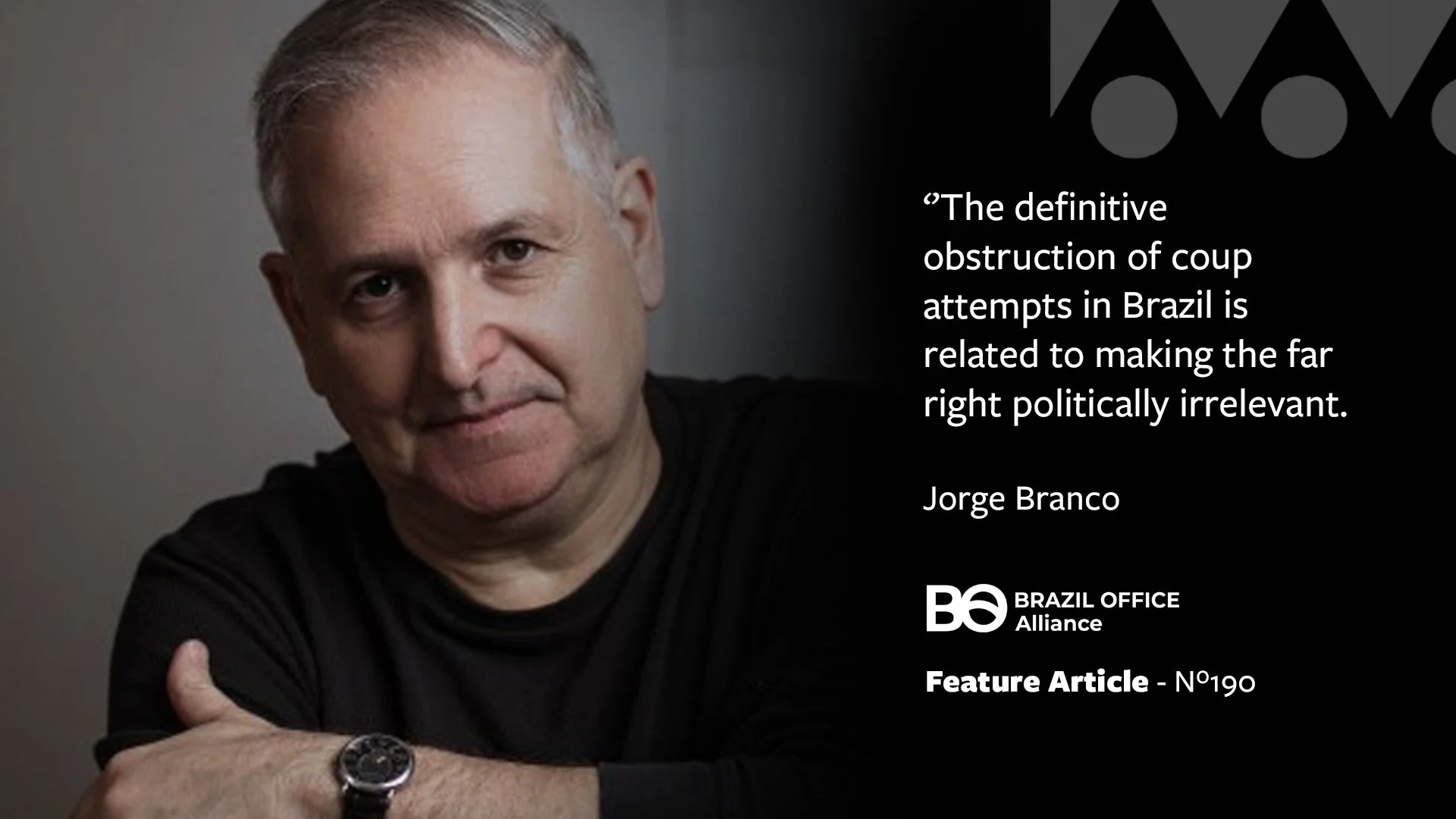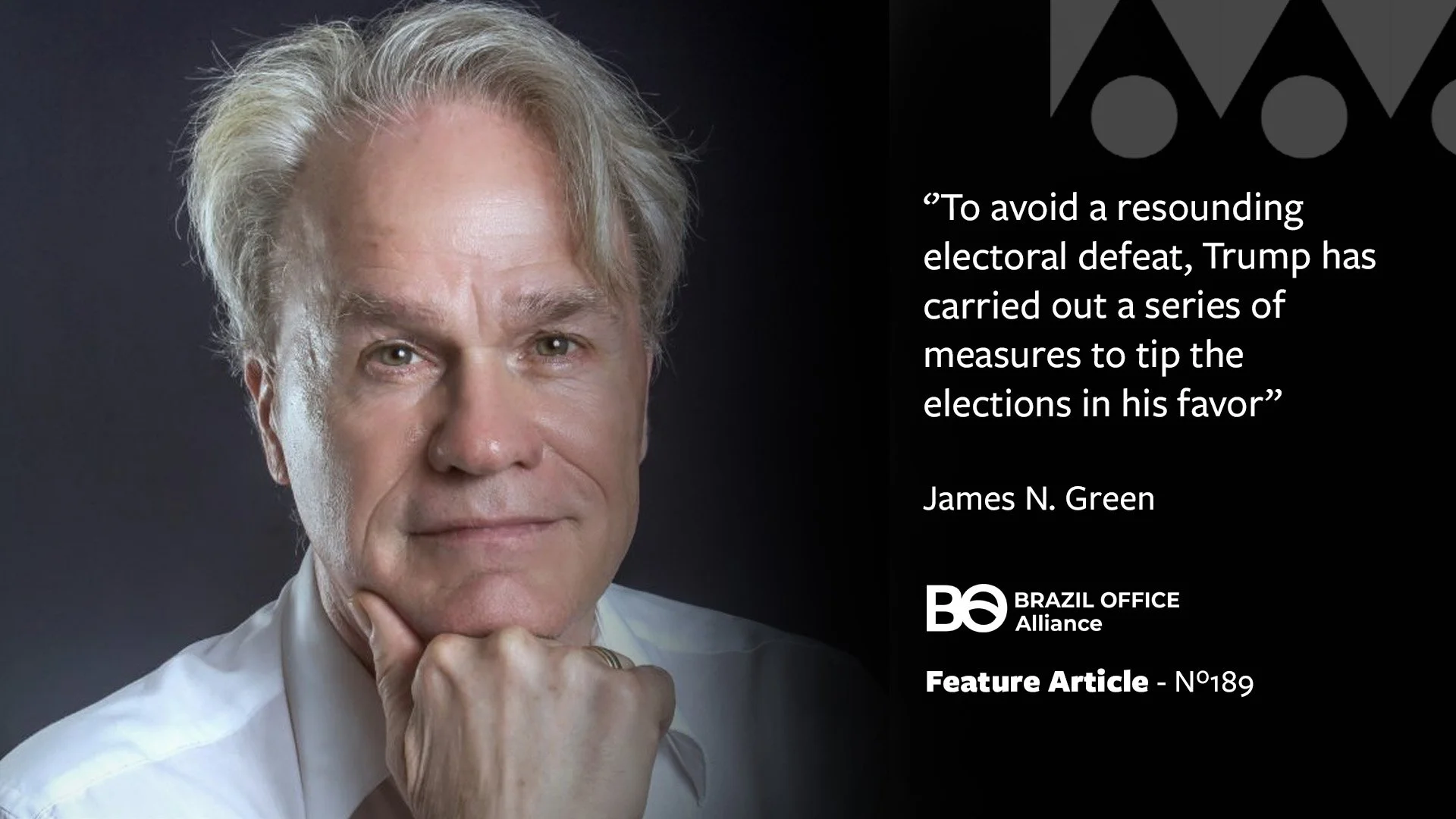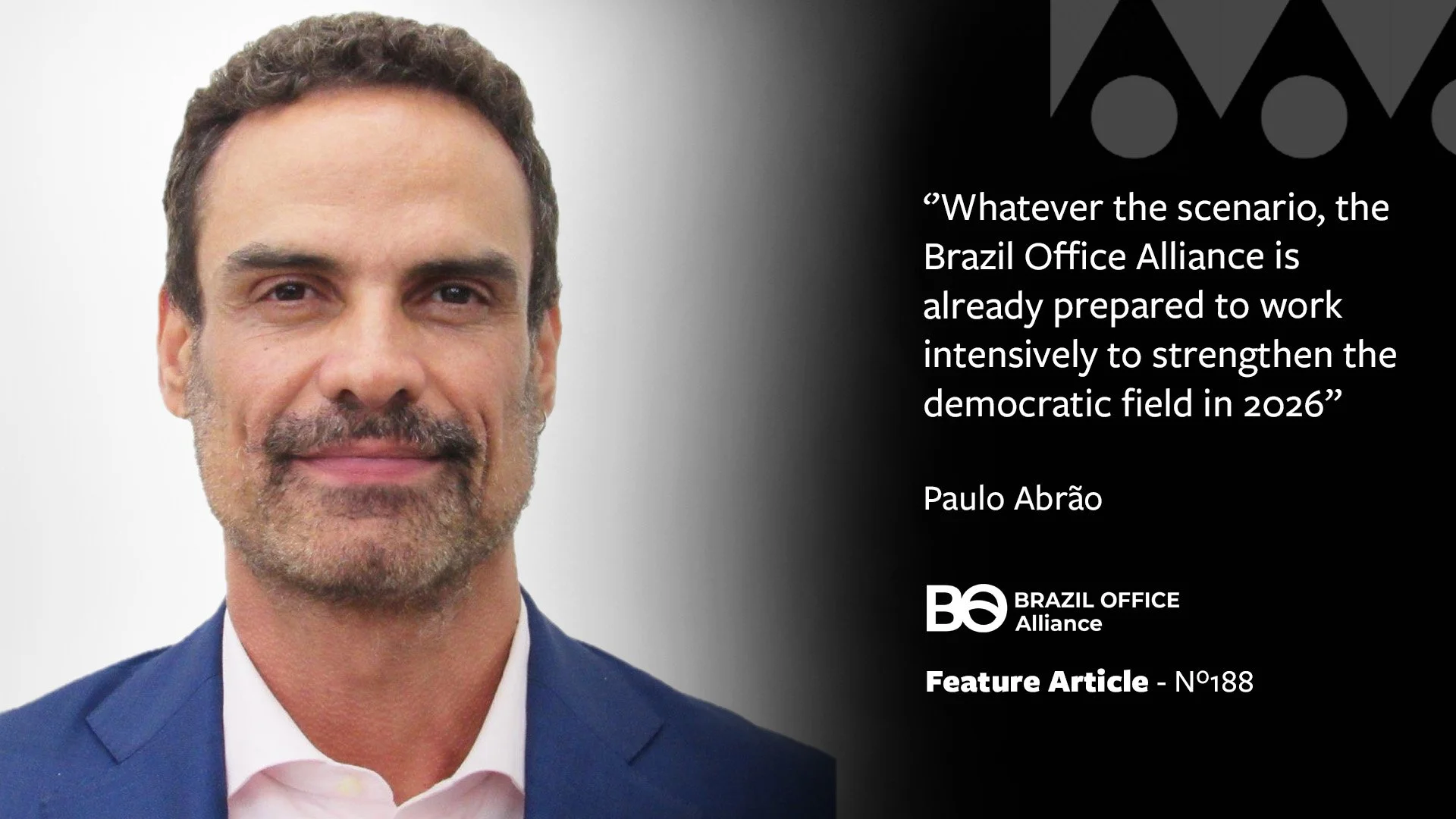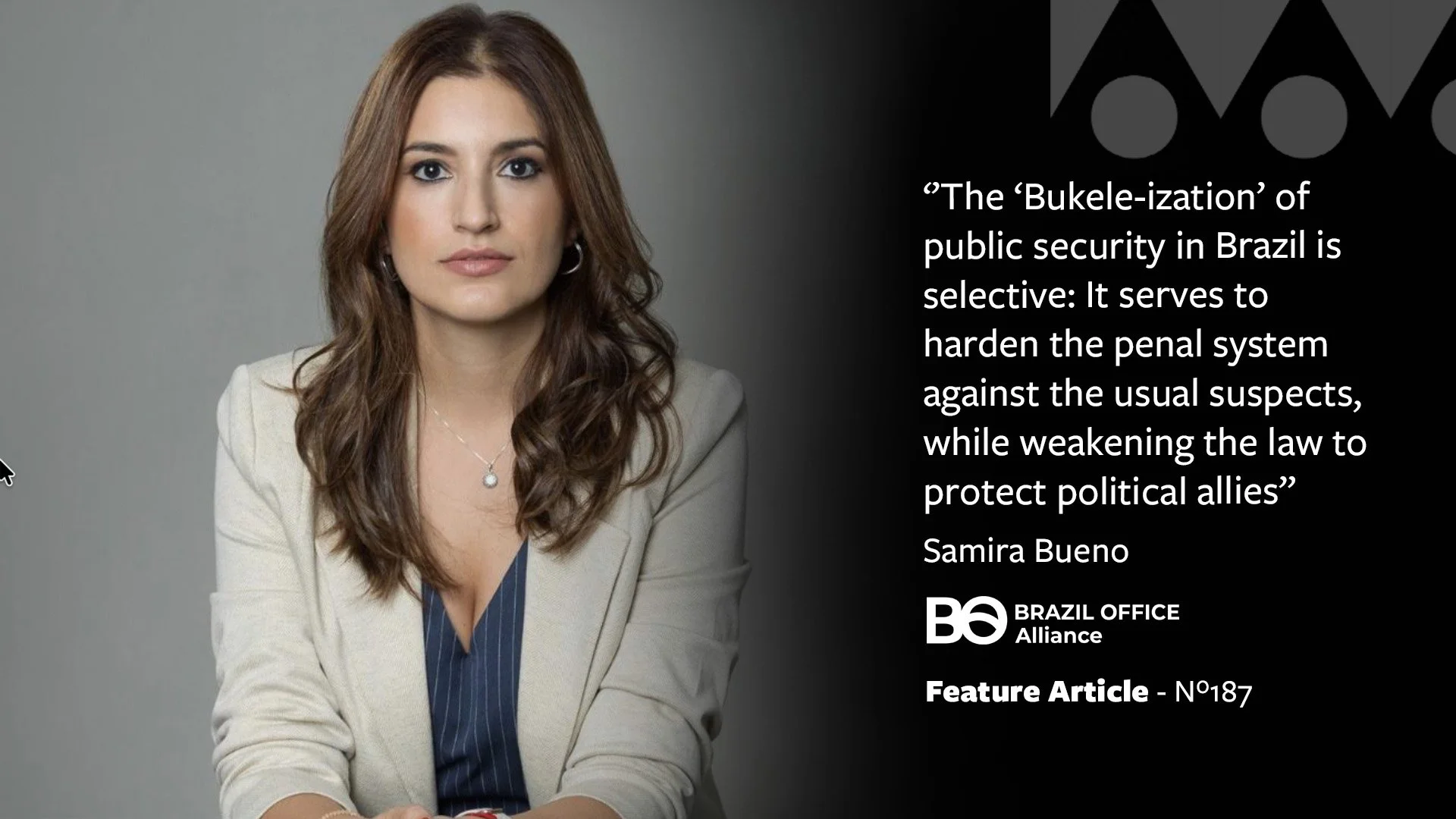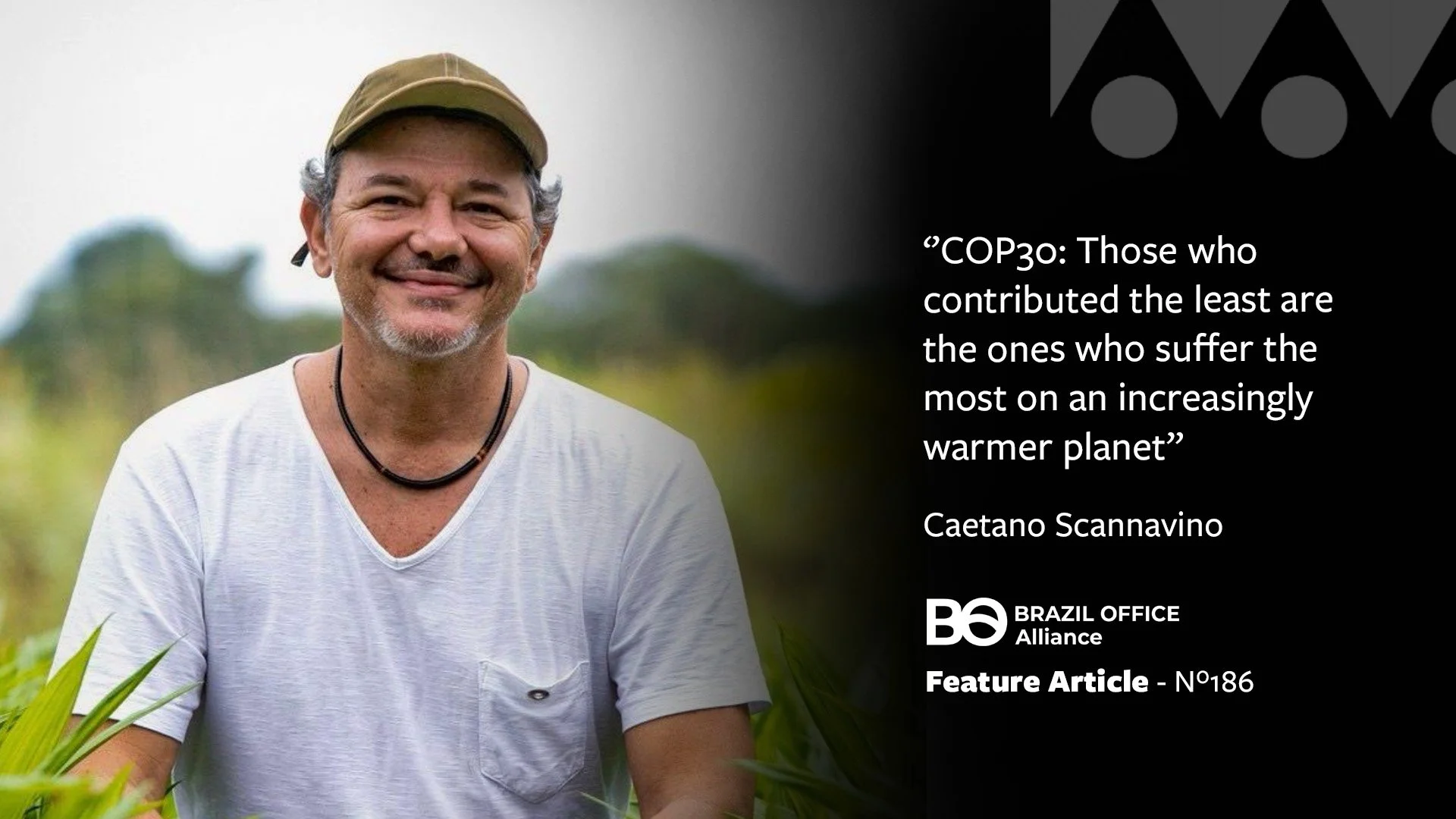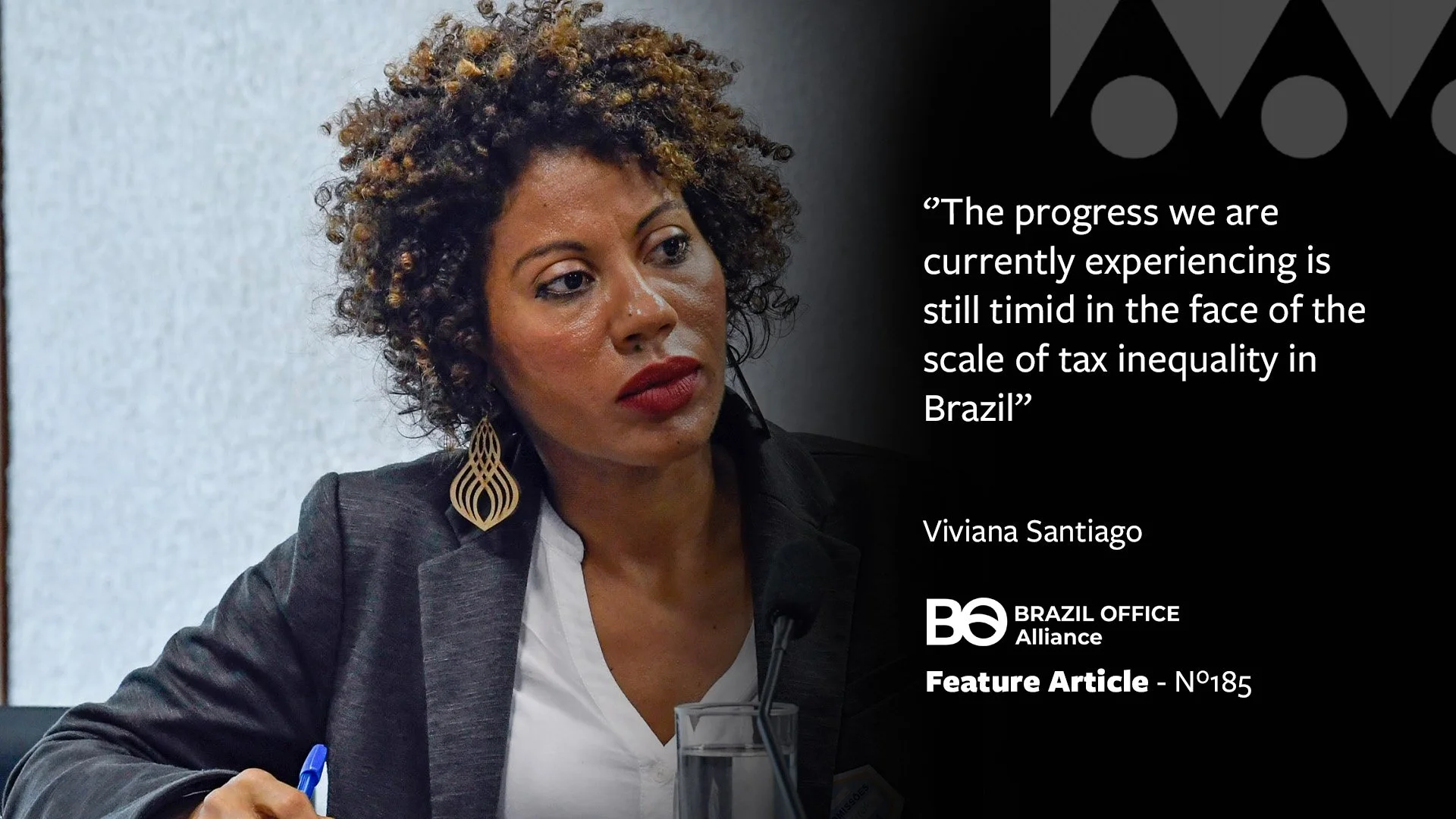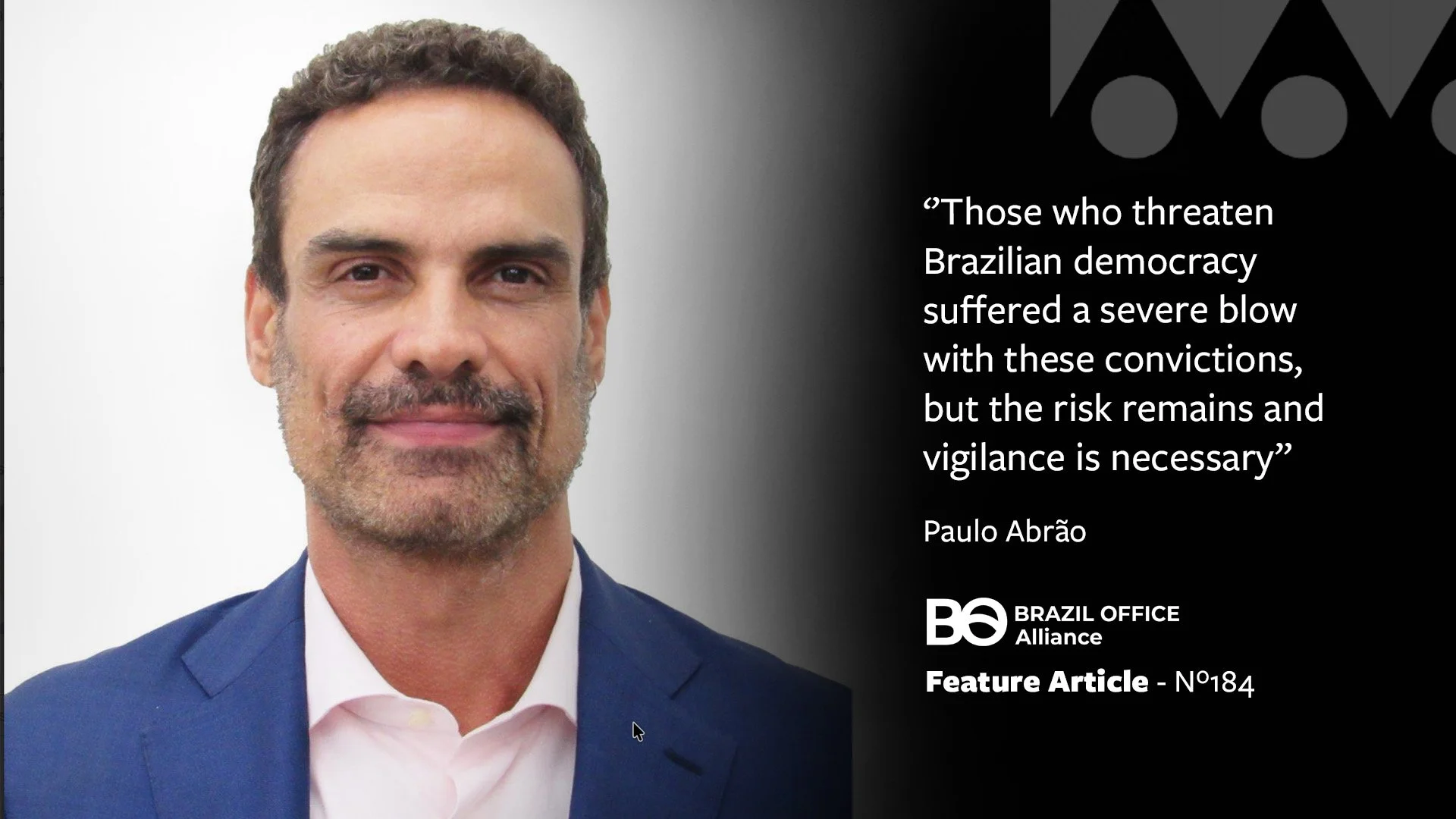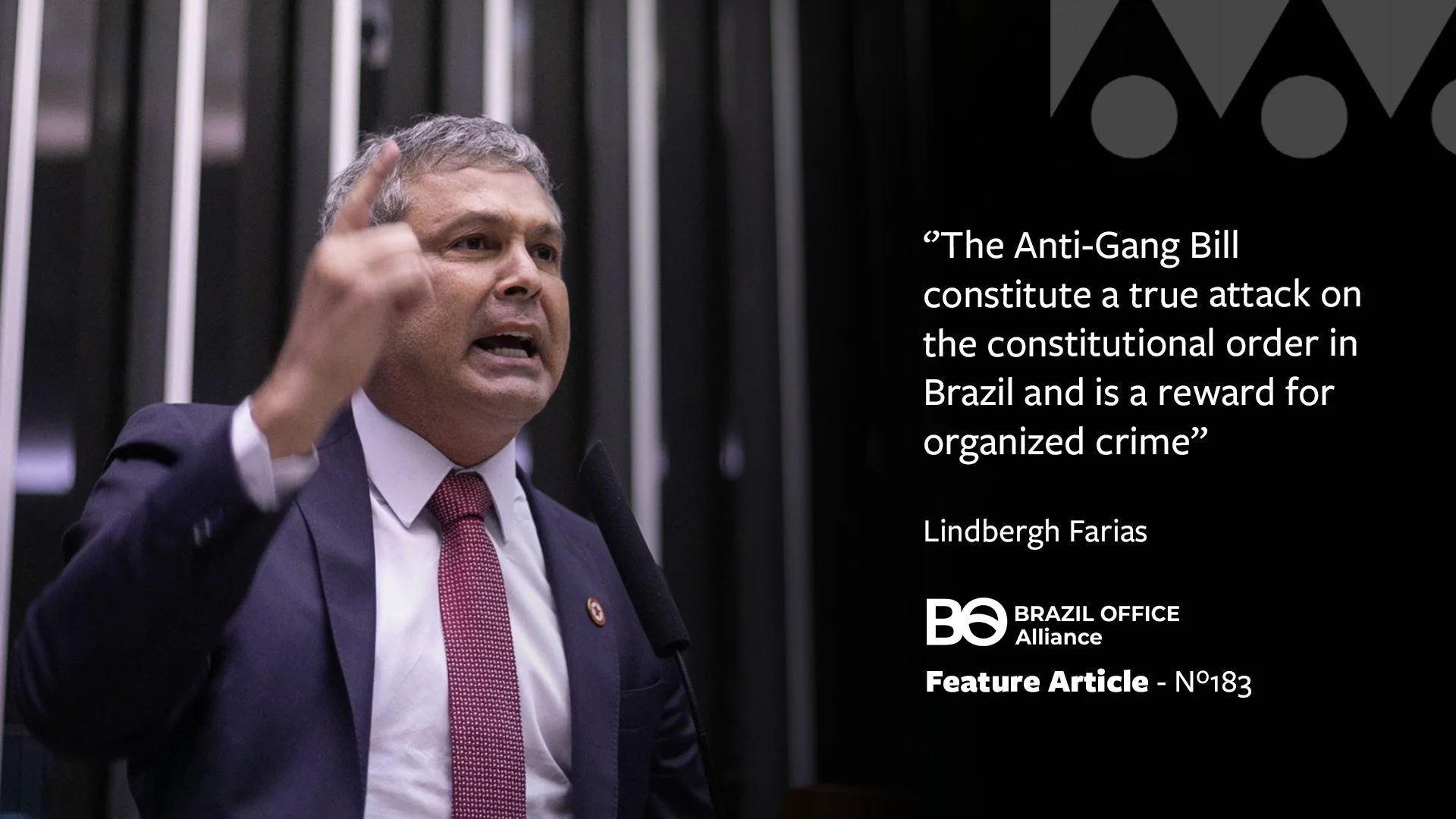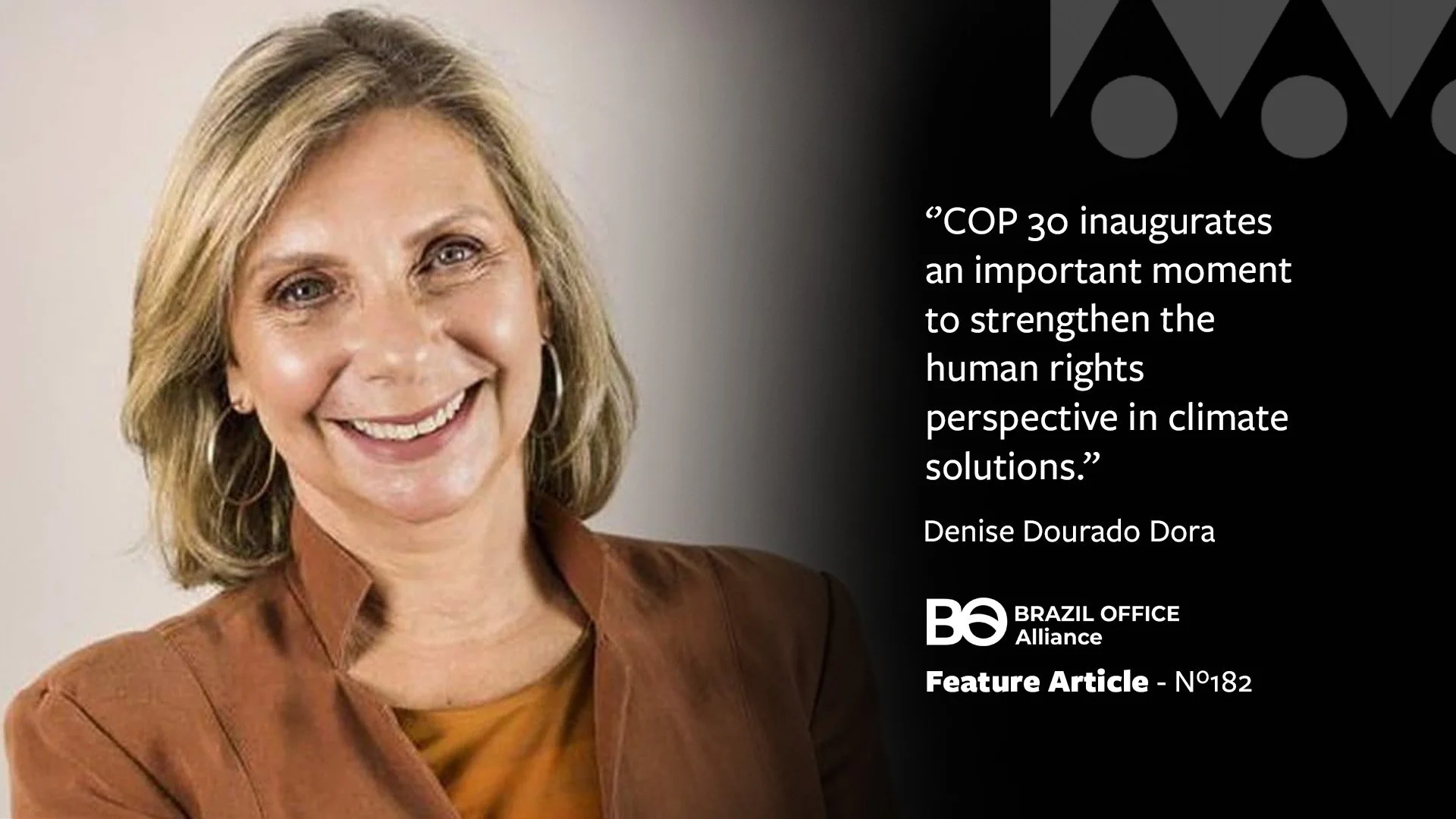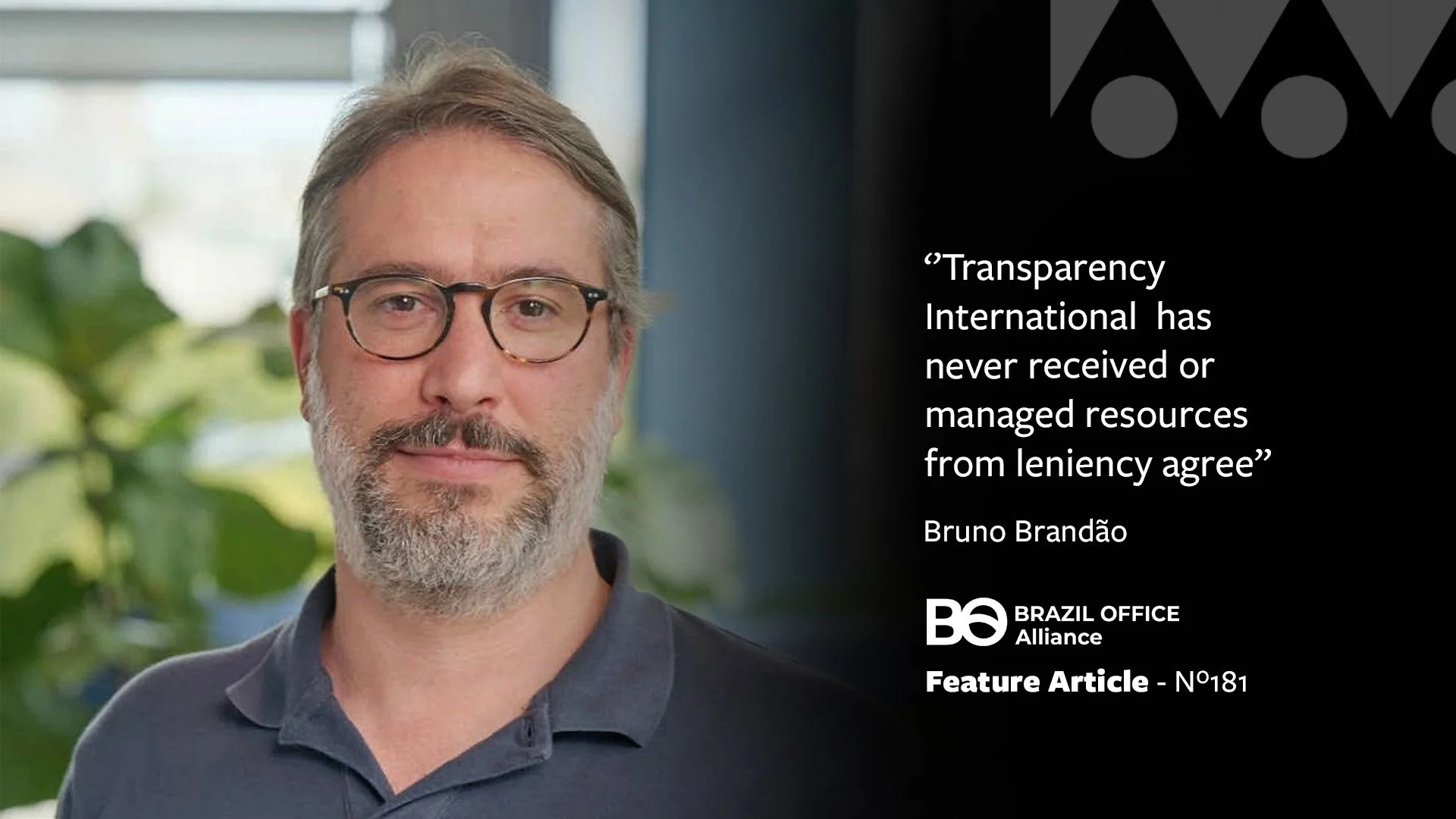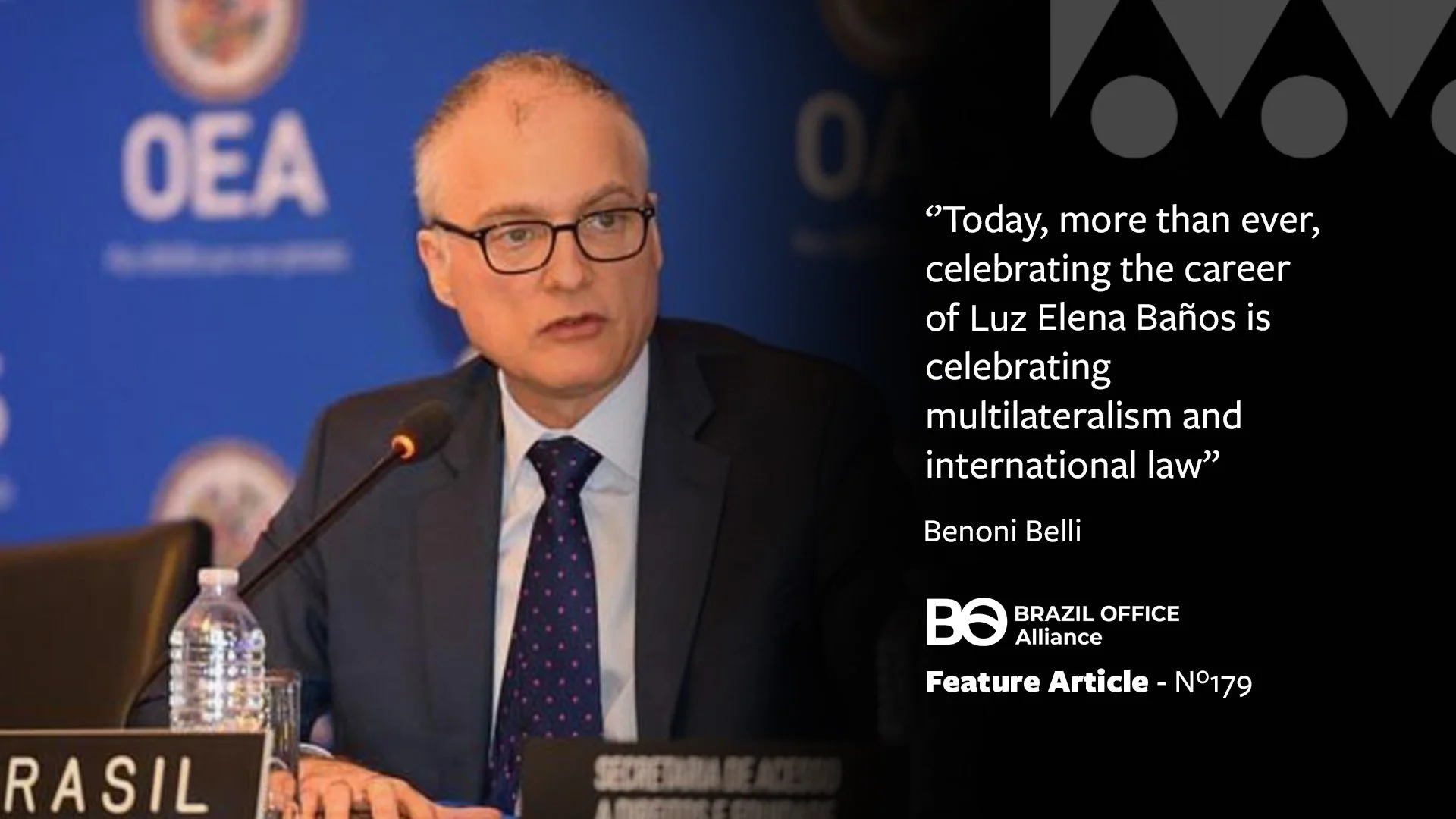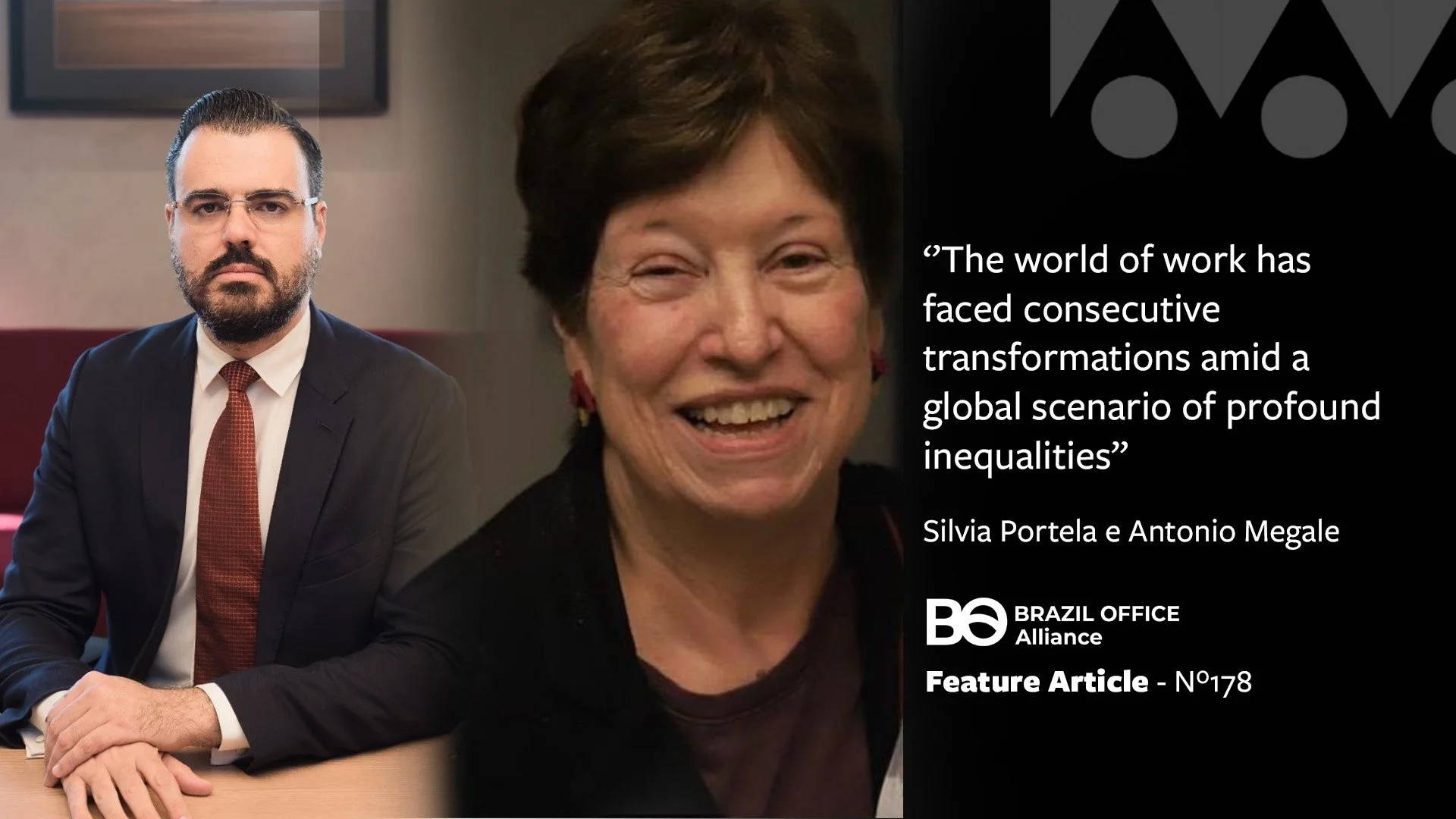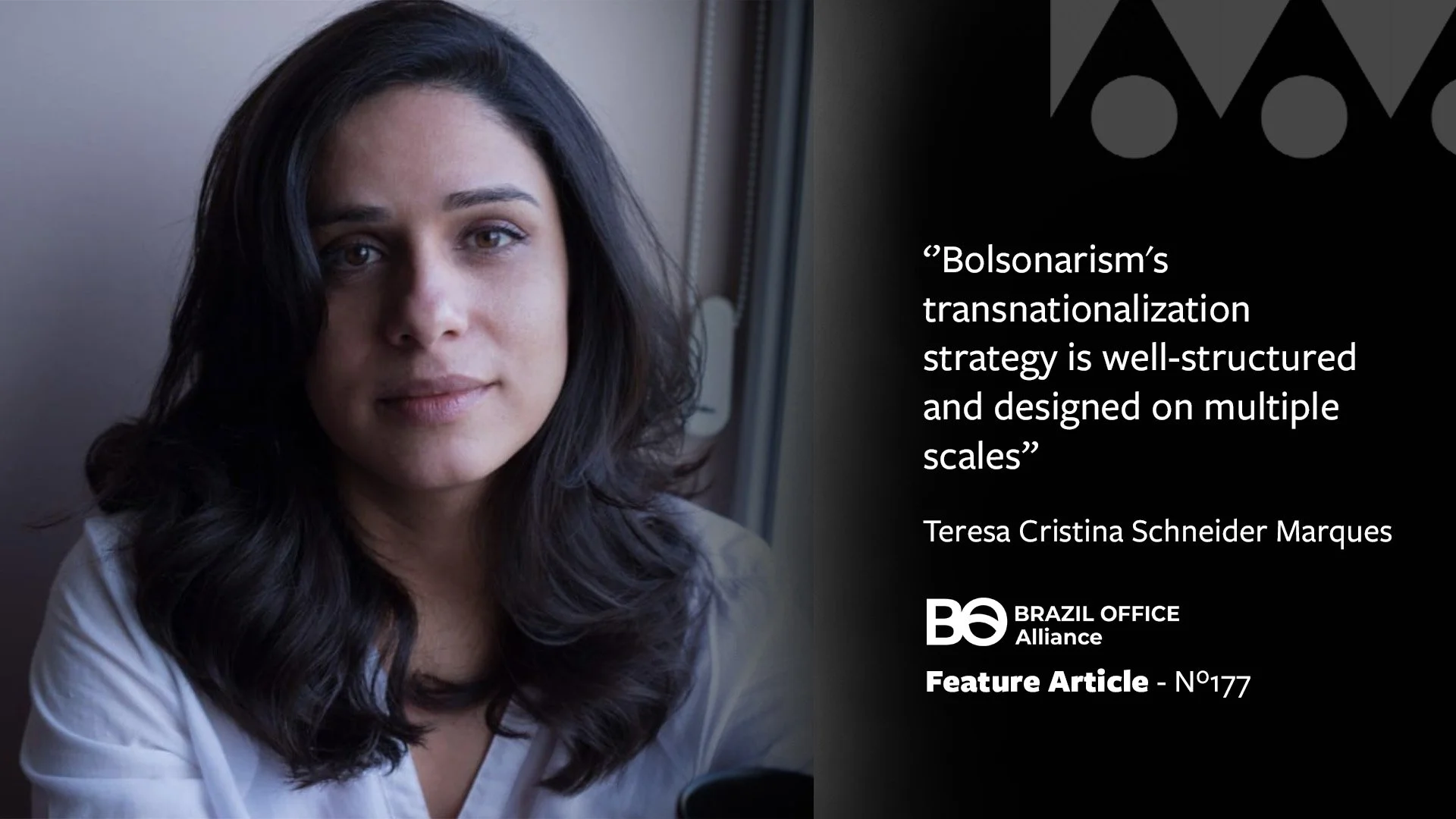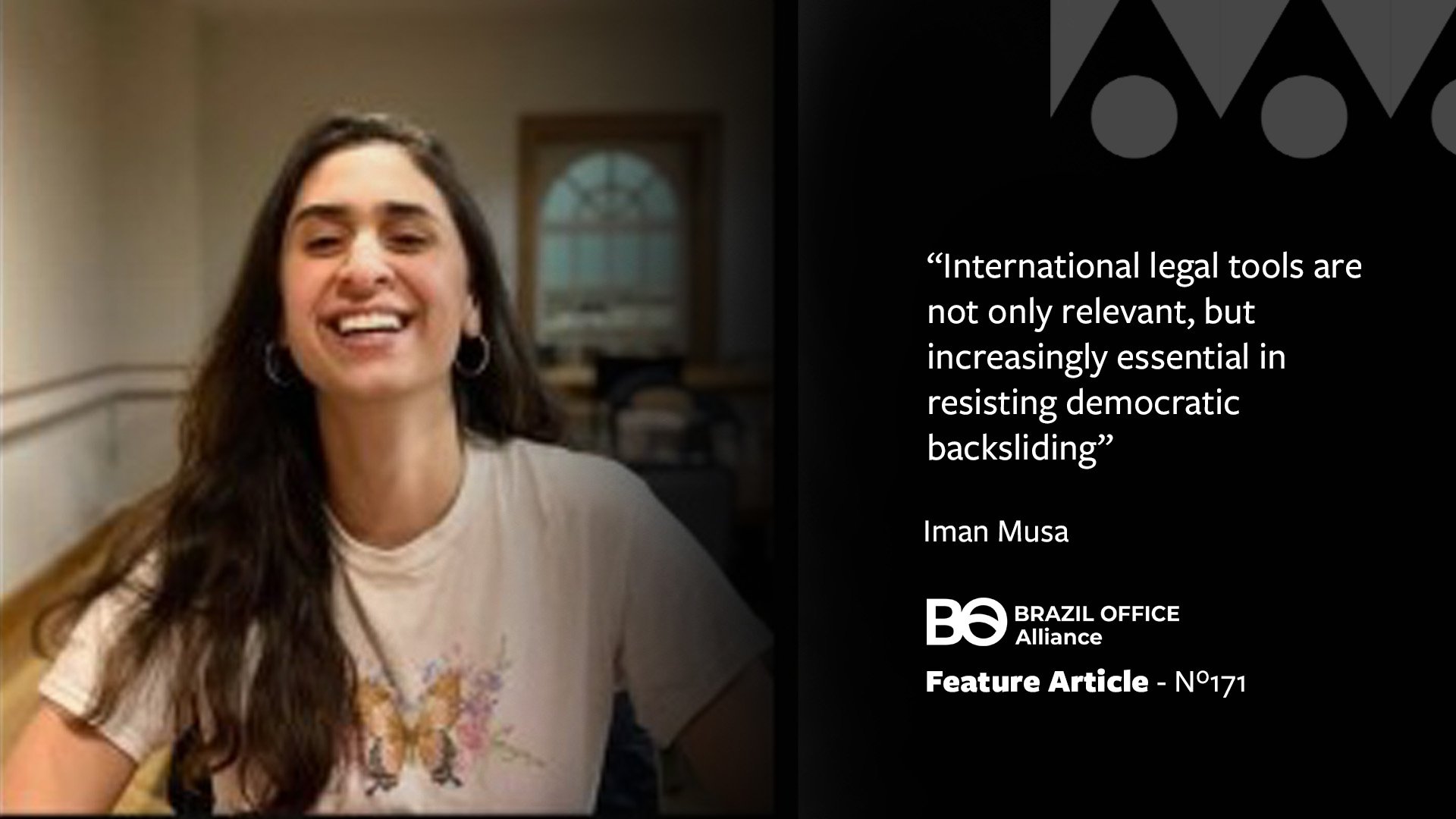Publications
Featured ARTICLESDemocracy is Not a Moral Quality, It is a Social Imperative
This January 8th, amidst the context of the greatest neo-imperialist offensive against Latin America since the 1960s and 70s, should be dedicated to the dissemination of anti-authoritarian values and social justice. Despite any ideological, moral, and utopian adherence we may have to the idea of democracy, it is fundamental to recognize that it is linked to the idea of equality. Its historical existence is strongly linked to the struggle of social movements and the Left.
The November 2026 U.S. Elections, Brazil, and Latin America
On November 4, 2026, tens of millions of U.S. citizens will go to the polls to elect the 435 members of the House of Representatives, one third of the members of the Senate, and many governors, mayors, state legislators, and local officials.
The priority in 2026 is to defend democracy in Brazil
Brazil will hold national elections in October of this year. The first round will be on the 4th and the second on the 25th. More than 150 million voters will go to the polls to vote for their candidates for President of the Republic, State Governor, Federal Deputy, State Deputy, and Senator
The Brazilian Congress and the Selective “Bukele-ization” of Public Security
Fear of crime and violence has made public security the main concern of the Brazilian population, according to recent research. This fear is not unfounded. A country that has historically lived with high rates of homicide and domestic violence has, in the last decade, begun to face a new phenomenon: the national spread of criminal organizations associated with drug trafficking, whose origins are based in São Paulo and Rio de Janeiro. Added to this is an epidemic of cell phone thefts, online scams, and increasingly organized and violent property crimes.
COP of Truths: If Belém Didn't solve Issues, It Set an Agenda
Truths be told. We already knew, but Belém further exposed the disregard for its own future of the most powerful nations, which call themselves the leaders of humanity. From the permanent members of the UN Security Council, at COP30 we saw a weakened Europe, a Russia at war, and the absence of the now climate change denying United States, the planet's biggest polluter along with China, which showed little willingness to make progress.
True Fair Taxation Requires a Counterpart from the Economic Elite, which is White and Male
In 2025, Brazil witnessed debates about fair taxation, which included income tax reform and the approval by the Chamber of Deputies and the Senate of a Bill (PL 1.087/2025) that in order to reduce inequalities in the country exempted citizens earning up to R$ 5,000 (approximately US$1,000) from paying personal income tax (IRPF). Furthermore, this same bill reduced income tax for those earning up to R$ 7,000 per month. Finally, as a compensatory measure for the tax waiver, a minimum tax rate of up to 10% was adopted, benefiting approximately 141,000 Brazilians (0.13% of the population), a percentage corresponding to those Brazilians with incomes above R$ 50,000 per month. The estimated impact of implementing these measures gives clues to the extent of the system's inequality, since this minimum taxation could alleviate the income of another 10 million people.
The Historical Significance of Bolsonaro's Conviction
On November 25th, the Brazilian Supreme Federal Court delivered a definitive sentence against former President Jair Bolsonaro, sentencing him to 27 years and 3 months in prison. He was found guilty of participating in the failed coup attempt that sought to prevent the current president, Luiz Inácio Lula da Silva, from winning the 2022 elections, taking office, and serving his legitimate third term. In addition to Bolsonaro, former ministers from his cabinet and high-ranking military commanders involved in the same coup plot were also convicted in the same trial.
Why does the Brazilian Right Want to Weaken the Federal Police?
The opinions of Guilherme Derrite, the Secretary of Security of São Paulo and a congressman, who supports Bolsonaro, and bill Bill 5.582/2025, known as the Anti-Gang Bill, constitute a true attack on the constitutional order in Brazil and is a reward for organized crime.
If Not Now, When? Human Rights and Climate
COP 30 inaugurates an important moment to strengthen the human rights perspective in climate solutions. Celebrating ten years of the Paris Agreement – an international treaty that establishes commitments from states to protect the environment and responsibilities regarding climate change – the Conference, taking place in Belém, has an enormous challenge ahead.
The Operation in Rio: Geopolitics and possible alternatives
The motivations for the operation in Complexo do Alemão that occurred on November 28, resulting in the murder of 121 people, are much more related to international geopolitics than one might imagine. It is urgent that the federal government propose robust responses to this issue before it is too late.
Between the Brazilian Supreme Court's Democratic Legacy and the Risks to Civic Space
In recent years, the Brazilian Supreme Court (STF) has played a decisive role in defending democratic institutions against threats and attacks from the Bolsonaro government. The Court also prevented the implementation of several harmful policies by that government and Congress, which threatened the rights of minorities, public health, and the environment, and advanced the accountability of former President Jair Bolsonaro and his conspiratorial group for the attempted coup. This week, in judging members of the so-called "fake news nucleus," it reaffirmed that disinformation cannot hijack public debate or intimidate institutions.
The Strength of Multilateralism: A Tribute to Luz Elena Baños
After more than six years leading the Permanent Mission of Mexico to the Organization of American States (OAS), Ambassador Luz Elena Baños will soon leave the position she held with pride, courage, and great distinction. She has been a career diplomat with nearly four decades of service to her country, during which time she accumulated vast experience in Latin America, the Caribbean, Europe, and Asia. During this period, she became an expert on a variety of fundamental issues—from security and defense to human rights, gender equality, and development. Luz Elena Baños put all this experience to work strengthening multilateralism at the OAS.
Observatory of International Labor and Social Rights – ODTI
Over the past five decades, the world of work has faced consecutive transformations amid a global scenario of profound inequalities and environmental destruction, the consequences of which primarily affect the poorest.
International Migrants on the Far Right and the Transnationalization Fronts of Bolsonarism in the US
Trumpism and Bolsonarism comprise the so-called "neopatriotic far right," a political movement that, according to Sanahuja and Burian (2024), may have specificities in each country, but which shares a discourse of distrust in the electoral processes of liberal democracies. This "ideological synergy" has made the two countries a hub for transnational and international articulation of the Brazilian far right, according to Paulo Abrão (2024). Furthermore, the United States has the largest population of Brazilians living abroad—over 2 million—and became the foreign country where Bolsonaro achieved his largest extraterritorial electoral victory in 2022.
How US Threats to Venezuela Would Affect Brazilian Leadership in South America
If there was any doubt about the hostility of Donald Trump's policy toward Latin America, his speech at the UN General Assembly on September 23 was illuminating. After discussing the alleged threats posed by Latin American immigrants, the US president targeted his attacks on Venezuela. He claimed that the attacks on Venezuelan vessels had blocked the entry of drugs into his country and, consequently, prevented the deaths of thousands of its citizens. In the same vein, he categorically stated that "terrorist" drug trafficking organizations were the “worst gangs in the world.” The message was brief but direct: the escalation of tensions in the Caribbean will continue.
Brazil and Mondiacult 2025. Challenges of Multilateralism and Cultural Cooperation
Mondiacult is the global conference on cultural policies and sustainable development, promoted by the United Nations Educational, Scientific and Cultural Organization (UNESCO) and historically recognized as the leading international forum for debate and formulation of cultural policies.
Relations between Brazil and India from the Multilateral Nexus: From the Bandung Conference to the 2025 BRICS Summit
The BRICS summit, held in Rio de Janeiro in June 2025, focused media and public attention on the contemporary debates that permeate the dynamics of the international system. With approximately 50% of the world's population and approximately 40% of global GDP, the bloc, comprised of Brazil, Russia, India, China, South Africa, Iran, Indonesia, Egypt, Ethiopia, and the United Arab Emirates, presents itself as a new center of international power and influence.
Unlocking Climate Finance through Forests: Brazil, BRICS, and the Road to COP30
In a world shaped by geopolitical tensions, structural inequalities, and accelerating environmental degradation, the climate crisis is advancing, alongside the urgent need for effective solutions. While technical options are widely known, their global implementation is hindered by a persistent financing gap. One of the most critical shortfalls lies exactly where some of the most promising climate solutions exist: tropical forests.
The BRICS and the Escalation of War
The BRICS countries are at the center of the geopolitical equations of global conflicts. Russia's wars against Ukraine, Israel's colonialist escalation against Palestine and, subsequently, Israel's war against Iran, as well as Trump's tariff measures have impacted international relations. This BRICS Summit meeting, which will take place in Rio de Janeiro on July 6 and 7, 2025, under the presidency of Brazil, will be more than heated.
Empowering Grassroots Leaders Through International Law: Reflections on the WBO’s Inter-American System on Human Rights Course
Between April and May 2025, the WBO held the online course “Inter-American System on Human Rights,” a groundbreaking initiative that brought together civil society leaders, students, and activists from across Brazil and the Americas. The course was part of the broader project “Strengthening the International Action of Environmental and Indigenous Organizations, Activists, and Defenders in Brazil,” made possible through the generous support of the Behner Stiefel Center for Brazilian Studies at San Diego State University.

